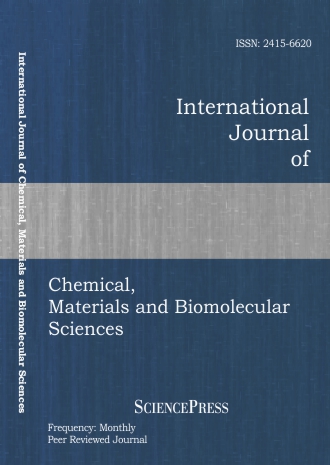
Scholarly
Volume:4, Issue: 12, 2010 Page No: 768 - 772
International Journal of Chemical, Materials and Biomolecular Sciences
ISSN: 2415-6620
1636 Downloads
Thermogravimetry Study on Pyrolysis of Various Lignocellulosic Biomass for Potential Hydrogen Production
This paper aims to study decomposition behavior in pyrolytic environment of four lignocellulosic biomass (oil palm shell, oil palm frond, rice husk and paddy straw), and two commercial components of biomass (pure cellulose and lignin), performed in a thermogravimetry analyzer (TGA). The unit which consists of a microbalance and a furnace flowed with 100 cc (STP) min-1 Nitrogen, N2 as inert. Heating rate was set at 20⁰C min-1 and temperature started from 50 to 900⁰C. Hydrogen gas production during the pyrolysis was observed using Agilent Gas Chromatography Analyzer 7890A. Oil palm shell, oil palm frond, paddy straw and rice husk were found to be reactive enough in a pyrolytic environment of up to 900°C since pyrolysis of these biomass starts at temperature as low as 200°C and maximum value of weight loss is achieved at about 500°C. Since there was not much different in the cellulose, hemicelluloses and lignin fractions between oil palm shell, oil palm frond, paddy straw and rice husk, the T-50 and R-50 values obtained are almost similar. H2 productions started rapidly at this temperature as well due to the decompositions of biomass inside the TGA. Biomass with more lignin content such as oil palm shell was found to have longer duration of H2 production compared to materials of high cellulose and hemicelluloses contents.
Authors:
References:
[1] R. Xiao, X. Chen, F. Wang, G. Yu, "Pyrolysis pretreatment of biomass